In a time where hybrid or fully remote working is becoming increasingly more common, it is really important to be able to make the most of your work environment. Sitting at your desk all day may seem like the best way to complete all of your tasks for the day, but there is only so long a human can focus before productivity begins to take a nose-dive. There are lots of small, easy changes you can make to your working day in order to ensure you are as motivated and productive as you can be, whilst still looking after your wellbeing. Here are our 5 favourite tips for increasing productivity at your desk!
Sounds counter-intuitive doesn’t it? Well, plenty of studies have shown that taking regular breaks away from your desk increase your productivity when you are back at your desk. Give your mind a break from your workload by taking a walk, grabbing a coffee or just getting some fresh air, which is proven to massively increase focus.
It is really important to stay hydrated, both in and out of the office. Increased water consumption improves energy levels and the quality of your sleep, both of which will have an impact on the quality and speed at which you complete your work. Whilst a cup of tea or coffee will aid rehydration, it is a good idea to keep a bottle of water at your desk so that you can drink throughout the day.
Think about what motivates or inspires you, without distracting you. Studies have shown that having pictures of loved ones, plants or other small personal belongings provide a quick mood boost and can increase focus. Ensuring your desk space is personalised to you but not cluttered is a good way to make the workday run a little smoother. Staying on top of organisation and storage also reduces the time you’ll spend hunting for that file or favourite pen, which can lead to further distractions!
If your to-do list is seemingly never-ending, it’s easy to feel demotivated and like you aren’t actually achieving anything. Breaking down big jobs in to smaller, more manageable tasks creates an easy plan to follow, as well as a huge feeling of accomplishment when you complete everything on your list for that day. Setting yourself smaller goals for the day mean you don’t feel overwhelmed, and you might find yourself surpassing your targets, which will further add to your sense of achievement.
So you’ve tried everything, been for a walk, had some water, looked at your office plants, but your workload still seems to be increasing and you can’t seem to get going? Talk to your co-workers, or the other people in your office, whether it’s on zoom, email, or face to face, the chances are that if you are experiencing a dip in productivity, they may be able to help. Either by reminding you of what the end goal is for your task or project, or by helping you manage some of your workload, the people around you are all part of your support network, and being able to engage with and offer assistance to your colleagues can have a feel-good effect on you as well.
For more great tips or resources that help increase productivity in the workplace, we like SnackNation’s blog: 34 Ways To Be More Productive At Work
It’s the question every Business and HR leader asks. You’ve rolled out new benefits, negotiated better coverage, even launched a whole new platform. But after all the internal comms, budget cycles, and supplier meetings, how do you know it’s working?
If your first instinct is to reach for usage stats or participation rates, you’re not alone. But true success in benefits design isn’t only measured in dashboards. It shows up in how people feel, how they work, and how they talk about your company when no one’s watching.
Here’s what measuring success really looks like.
The most successful benefits programmes don’t just boost uptake; they boost morale. When employees feel genuinely supported and valued, that sense of security and appreciation spills into how they show up at work, and how they talk about your business when they’re not at work.
You see it in how confidently people recommend your company to others. You feel it in team energy, reduced attrition, and stronger engagement. In fact, plenty of research shows that benefits are one of the biggest drivers of overall job satisfaction, right behind pay.
Happiness at work is about creating an environment where people feel like their wellbeing is genuinely supported, and where they can bring their full lives not just their job titles to the table.
A one-size-fits-all approach might be simple to manage, but it rarely delivers what today’s employees need. This is especially true for organisations managing larger workforces with varied cultural norms, regulatory frameworks, and expectations.
Successful programmes prioritise real flexibility: custom allowances, region-specific design, and meaningful choices that reflect employees’ personal lives and priorities. It’s not about offering everything, but about curating something thoughtful and responsive, and allowing space for people to make it their own.
The most meaningful benefits are the ones people remember for life, not the ones they click on most.
Last week I wrote an example about how people remember getting access to fertility support that led to a baby, receiving healthcare when they needed it most, or being able to visit family because of an annual leave purchase scheme. This stuff is harder to put a number on, but infinitely more impactful.
None of these outcomes show up neatly in a usage report. But their impact? It’s enormous. Not just for the person involved, but for everyone who sees that story unfold, and quietly logs it as a reason to stay.
Storytelling isn’t fluffy. It’s one of the most powerful ways to measure emotional ROI and increasingly, it’s what leadership teams care about. If any business leader can explain the value of their benefits programme through stories, not just numbers, they’re doing something right.
Companies are investing huge amounts into employee benefits, but many struggle with low awareness and poor utilisation. This isn’t always a design problem it’s often a communication problem.
If your employees can’t name even three benefits they have access to, that’s not on them. A successful programme is one that people remember. One that shows up in their lives in relevant, timely ways. One they can talk about without needing to consult a portal or policy document.
The bottom line? Focus on impact over optics
A successful benefits strategy isn’t about chasing 80% participation rates or offering the longest list of perks. It’s about building something that matters. That makes people feel supported, empowered, and proud to work for you.
That might look like:
And stories that connect the dots between policy and real life!
Here’s how forward-thinking companies are stretching their employee benefits budget while delivering high-impact employee experiences.
In today’s economic climate, business and HR leaders are under more pressure than ever to do more with less. But making your employee benefits budget go further isn’t just about cost-cutting, it’s about spending smarter. The key? Reimagine you’re spending to create effective benefits for your team.
Here’s how leading organisations are stretching their employee benefits budget while delivering high-impact employee experiences.
One of the biggest misconceptions in benefits design is that higher spend automatically means better strategy. But great benefits aren’t defined by price tags. They’re defined by relevance, accessibility, and alignment with what your people need.
Too often, businesses pour money into legacy schemes or overlapping policies with low visibility and poor utilisation. Instead, a smart approach focuses on realigning spend to improve impact.
Start by asking:
Prevention is better than cure, and cheaper too. Many employers still spend disproportionately on reactive benefits (like medical insurance) over proactive ones (like wellness, mental health and preventative care).
That’s a missed opportunity. Proactive benefits reduce downstream costs, from insurance premiums to sick days. And many of them come baked into existing products, such as virtual GP access or gym discounts. These extras are often buried in fine print. If they’re not visible to employees, they’re not really benefits.
There’s often untapped value sitting in your current scheme. From EAPs to death-in-service benefits, many include ancillary offerings that never get used simply because they aren’t visible.
Audit what you’re already paying for and ask:
Bringing these hidden benefits to the surface can increase perceived value and boost engagement without increasing spend
If you’re in the UK, you have access to powerful tools that can generate budget through tax efficiencies. Benefits like workplace nursery, cycle-to-work, EV leasing, and annual leave purchase can be offered through salary sacrifice, reducing employer NIC contributions.
Those savings can be reinvested elsewhere. For example, one employer used their savings from annual leave trading to fund fertility support and wellbeing allowances all without adding to their overall benefits budget.
You don’t need to spend more to do better. Many businesses can reallocate 20-30% of their current benefits budget by identifying low-impact coverage and redesigning based on what employees’ value.
Consider:
Designing with flexibility opens space to offer more relevant and personalised benefits without increasing cost.
Modern employees expect choice. And personalisation is no longer a luxury, it’s table stakes. Flexible benefits platforms let employers offer a wide range of voluntary benefits, allowances and salary sacrifice options with minimal admin. You can even offer flexibility within existing benefits by allowing employees to adjust their coverage levels or add dependents at their own cost.
A benefit employees don’t know about isn’t really a benefit. Awareness drives engagement, and engagement drives value.
Yet many benefits teams launch new schemes with a single email and hope for the best. Instead:
If you’re not investing in communication, you’re leaving ROI on the table.
Utilisation alone is not the measure of success. Some benefits, like fertility support, menopause care or neurodivergent coaching, will only ever impact a small portion of your workforce. But when they do, they change lives.
When your finance team asks, “Why are we paying for this?” be ready with the answer: because retention, wellbeing, and employee trust aren’t built on averages. They’re built on moments that matter.
Getting more from your employee benefits budget isn’t about trimming. It’s about redesigning with purpose. When you:
…you’ll be amazed at what’s possible!
Business Leaders & HR are under a lot of pressure here in the South-West. Employer NI increases are now with us, limited budgets, and rising expectations from talent. So, when you’re building out a benefits package, it’s natural to prioritise the ones that tick the “most people, most of the time” box. But if you want your benefits strategy to build loyalty, protect productivity, and future-proof your workforce, you must think differently. In my experience, utilisation isn’t always the right way to measure the success of a benefit. Some benefits might only impact a handful of people, but for those people, it can mean everything. If we’re serious about inclusive benefits, we must meet people where they are, even if that need isn’t common.
Because some of the highest-impact benefits are the ones your employees won’t use often. They’re the ones that quietly sit in the background until someone has a real need and suddenly, that benefit becomes the reason they stay, not leave. What do I mean by that? Here’s some examples of what that looks like in practice.
For example, Fertility & Reproductive Health Benefits. Offering fertility support (Egg freezing, IVF, donor support, surrogacy navigation) can feel and sound like a niche benefit. Most employees won’t use it. So why invest?
Because the absence of support comes with hidden costs. Research tells us that 1 in 7 UK couples experience fertility issues. IVF takes a physical and emotional toll: constant appointments, hormonal treatments, failed cycles…all while employees try to show up at work. Many reduce hours, take sick days, or even quietly leave during treatment. Others are forced to spend tens of thousands privately, causing financial and emotional stress. This disproportionately affects women in their 30s and 40s. But it doesn’t stop there: LGBTQ+ employees face unique financial and medical hurdles to build families. Without support, they’re more likely to churn or disengage. Offering benefits here isn’t just about doing the right thing; it’s about retaining high-value talent at a moment when they have big life choices to make. And for every employee who doesn’t use it? They see the offer. They see what kind of employer you are.
Keeping on the similar theme, another example is keeping Workplace Nursery Schemes. Childcare is the *1 reason working parents (especially mothers) scale back or leave the workforce. It’s not anecdotal. It’s backed by data across every sector. Workplace nursery salary sacrifice schemes reduce the cost of registered childcare by allowing payments from gross salary. This can mean thousands saved per year. And not from your HR budget, but via tax-efficient mechanisms. It’s one of the most financially meaningful benefits you can offer parents, yet uptake remains low in most organisations. Why? Because many employers don’t make the most of communicating it. Offering this benefit (and making it visible) removes one of the biggest logistical and emotional barriers to returning after parental leave. And it doesn’t just keep people in their jobs; it helps them re-engage faster, with fewer compromises and more long-term commitment.
Finally, another example are Income protection and Critical Illness benefits. When an employee becomes seriously ill or injured, it’s not just a health crisis, it’s a life interruption. Suddenly, work becomes impossible. And without structured support, income often disappears just when stability is needed most. Income protection fills that gap. It ensures an employee continues to receive a portion of their salary while they recover, allowing them to focus on getting better, not on whether they can pay their mortgage. And that continuity materially improves the odds of a full, confident return to work.
For Business Leaders and HR, this is where lower-utilisation benefits prove their worth. Income protection shortens recovery time, reduces presenteeism, and increases the likelihood that skilled, experienced employees don’t exit permanently. And when other team members see that their employer has their back, even in worst-case scenarios, it builds a level of trust that policies alone can’t buy.
All the above examples do not scale…and that’s the point!
Low-utilisation benefits aren’t supposed to serve everyone, every day. They’re designed to catch people in their most vulnerable, high-stakes moments. That trust is a lever for everything you care about retention, engagement, productivity, culture.
Business Leaders and HR often get told to “think creatively & strategically.” (This is the Bristol Creative’s Community, right?) Here’s the truth: empathy is strategic. Investing in benefits that show foresight, nuance and care is how you build a workforce that stays, grows and delivers. Because when your employees are most in need, they won’t care about your summer social. They’ll care about whether you were there when it counted.
And if you were? They won’t forget it.
The UK employee benefits landscape is shifting (as always), and business leaders and HR must be prepared. With new regulations including pay transparency laws in the EU, NI increases in the UK, and proposed pension reforms businesses need to stay ahead to ensure compliance while also managing costs and employee expectations.
At first sight, these changes might seem like yet another regulatory burden, but in reality, they offer an opportunity for Business’s here in the South-West to improve transparency, refine benefits strategies, and enhance the employer brand. The key is knowing how to navigate them effectively.
What’s changing?
Firstly, the EU Pay Transparency Directive
What’s that?
In a major move toward greater pay equity, the EU has introduced the Pay Transparency Directive, which will take full effect by June 2026. This regulation is designed to combat pay gaps by ensuring salary clarity and fairness across workplaces.
For Businesses, this means new obligations, including:
Salary transparency during recruitment: Employers must disclose salary ranges in job postings and are prohibited from inquiring about candidates’ salary histories.
Gender pay gap reporting: Organisations with at least 150 employees are required to report on gender pay gaps, with the threshold decreasing to 100 employees after four years.
Right to pay information: Employees can request information on average pay levels, broken down by gender, for categories of workers performing the same work or work of equal value.
While these rules may present administrative challenges, they also push businesses to be more transparent about their pay structures, which can boost trust, attract top talent, and improve retention. The companies that embrace this shift early—by conducting internal salary audits and ensuring pay structures are equitable—will find themselves in a stronger position than those scrambling to comply at the last minute.
Next up..NI increases
In the UK, employer National Insurance Contributions are set to increase from 13.8% to 15% tomorrow! This means a direct rise in payroll costs for businesses, potentially squeezing budgets further in an already challenging economic climate. To manage this impact, many businesses are turning to salary sacrifice schemes, where employees trade a portion of their salary for benefits like pension contributions or other tax-efficient perks. This approach can reduce the NIC burden for both employers and employees while ensuring that workers still receive valuable benefits.
As payroll costs rise, Businesses and HR will also need to re-evaluate benefits spending and look for ways to offer impactful benefits without unnecessary cost increases. Smart benefit strategies such as financial wellbeing programs can help businesses remain competitive without simply increasing salaries.
Thirdly, Pension reforms
Pension reform is also evolving, with a focus on expanding auto-enrolment and increasing minimum contributions. Proposed changes include
These reforms aim to boost retirement savings, but they also increase employer costs and administration.
Saying that, these changes haven’t been made official yet (so a bit of a heads up!) Employers should stay informed about potential future changes to auto-enrolment criteria to ensure compliance and optimal benefits administration (that’s how I can help BTW)
What’s that all mean for Business Leaders and HR?
These regulatory shifts may feel like another compliance headache, but they also create opportunities to refine HR strategies and position businesses as leaders in fair pay and employee wellbeing.
From a compliance perspective, failing to align with these new laws could lead to financial penalties, reputational damage, and even employee lawsuits. Payroll will need to stay on top of NI changes, while preparation for pay transparency reporting requirements and ensure pension enrolment processes are ready for possible reforms is needed.
On the cost side, companies will need to navigate higher payroll expenses from NIC increases and potential pension changes, meaning efficient benefits management will be more important than ever. Instead of simply increasing salaries, businesses can optimise a “total rewards strategy” to ensure every pound spent on employee benefits is meaningful and effective.
But beyond compliance and cost control, these changes also offer a competitive edge. Businesses that embrace transparency, invest in employee financial wellbeing, and optimise benefits to meet new expectations will stand out as top employers by attracting and retaining talent in an increasingly benefits-driven job market here in the South West.
So…How to stay ahead? Here’s some practical steps
Prepare for pay transparency now
Start by conducting an internal salary audit to identify and fix any pay disparities before public reporting requirements take effect. Train managers on fair pay practices, and ensure job ads include clear, competitive salary bands. Taking proactive steps now can prevent compliance issues later.
Offset NIC increases with intelligent benefits
With employer National Insurance contributions rising, rethink your benefits strategy. Salary sacrifice schemes can reduce payroll tax burdens, while flexible benefits platforms allow employees to choose perks that are cost-effective yet highly valued.
Stay ahead of pension changes
Even though pension reforms aren’t yet law, businesses should prepare by reviewing auto-enrolment processes and exploring ways to enhance pension contributions in a cost effective manner. Communicating clearly with employees about their pension options will also be essential in boosting engagement.
Automate and streamline benefits management
Manually handling pay transparency reporting, NIC adjustments, and pension enrolment is a time-consuming burden for HR teams. Investing in intelligent benefits technology to automate compliance, simplify payroll adjustments, and provide real-time insights to optimise benefits strategies.
March is B Corp Month, which celebrates businesses that have achieved certified B Corporation status, a measure of high standards of social and environmental performance, transparency, and accountability.
Our region has many B Corps. In fact, a report in 2023 said Bristol is home to the most B Corps of any UK city outside of London.
To mark B Corp Month 2025, we put a call out to B Corps in the Bristol Creative Industries community and had a great response. Read about inspiring businesses below, with their tips for how to become a certified B Corporation.
“My biggest piece of advice for businesses considering B Corp certification? Just start! The process may seem intense at first, but once you take that first step, it all becomes much more manageable. The B Impact Assessment gives you a clear benchmark, and it’s quicker to work through than you might think. More importantly, see it as a journey. Every step you take is a step towards becoming a better business for both people and the planet. By simply starting, you’re already making a positive impact!”
Tom Locke, Noughts & Ones (BCI member profile | B Corp profile)
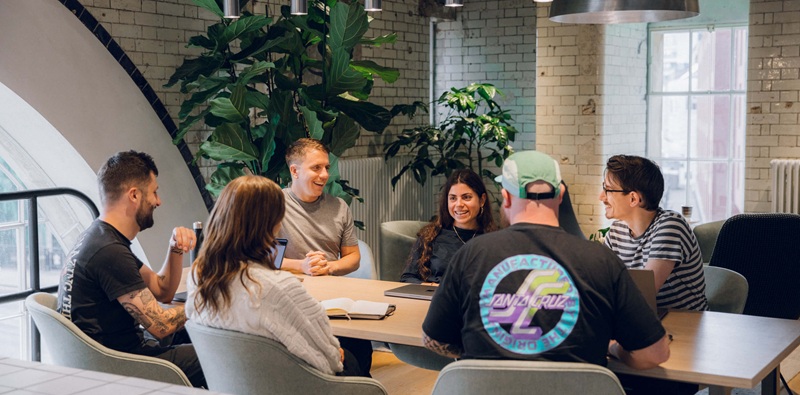
“To become a successful B Corp focus on embedding sustainability deeply within your company culture. Start by clearly assessing your environmental impact. For example, Atomic Smash made a big step by transitioning a majority of clients’ hosting to providers that solely use renewable energy and prioritising greener digital practices. Regularly evaluate your performance through the B Impact Assessment, ensuring continuous improvement. By transparently integrating these purposeful practices into daily operations and clearly communicating your efforts, your business can successfully attain B Corp status and inspire positive change.”
David Darke, Atomic Smash (BCI profile | B Corp profile)
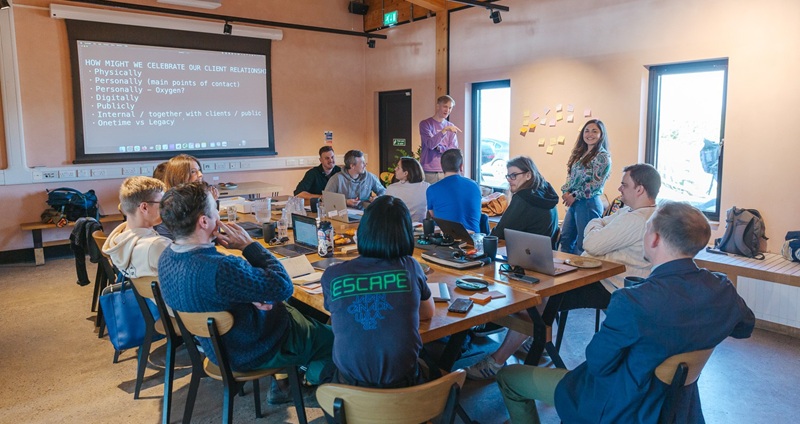
“One of the key tips about becoming a B Corp is that you don’t just become one and tick it off your list. Achieving B Corp certification is just the start of the journey. It’s about a wholehearted commitment from the top to the bottom of your organisation to do better business. It affects everything – from Articles of Association and company mission, to choice of suppliers, clients, company policies and so on. No business is perfect, but the B Corp assessment criteria help to set priorities and objectives towards meaningful change so that people and planet are considered equally alongside profit. It’s a huge commitment, but for us, there’s no other way to do business.”
Alex Ririe, The Collaborators (BCI profile | B Corp profile)
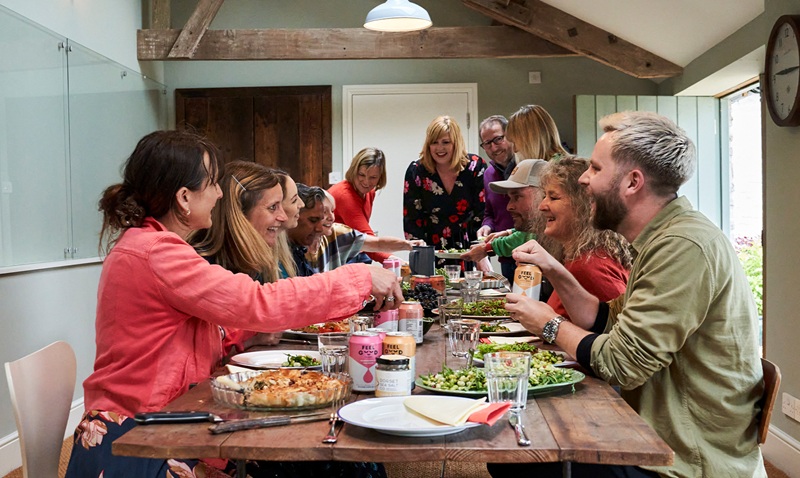
“Halo was one of the first 1,000 businesses in the UK to become a certified B Corp.
“Becoming a B Corp challenges you to focus on areas often overlooked and helps focus your business into a force for good. There is a lot to do, so I’d say start small—review suppliers, refine policies, and engage employees by letting them choose causes they’re passionate about. Keep it on the leadership agenda, talk and learn from other B Corps.
“The process is about continuous improvement, ensuring accountability and impact. Going green doesn’t mean an overhaul; think local, reduce waste, and measure your footprint- we plant a tree for every invoice we raise. The biggest tip? Just get going.”
Nina Edmonds, Halo (BCI profile | B Corp profile)

“Our mission is to shape an industry where paid media done the right way delivers client success whilst contributing to stronger communities and a healthier planet.
“This clearly aligns with the B Corp values and the accreditation has helped us focus on how we can expand our purpose.
“We had a mentor, Business on Purpose founder Andy Hawkins, to guide us through the process, which was very helpful. The B Corp community is a valuable one in which working collaboratively is at its core. If you are not sure whether to proceed with the accreditation, feel free to reach out to us (or any other friendly B Corp) and we’ll be happy to answer any questions.”
Toby Parkins, The Nest Media (BCI profile | B Corp profile)
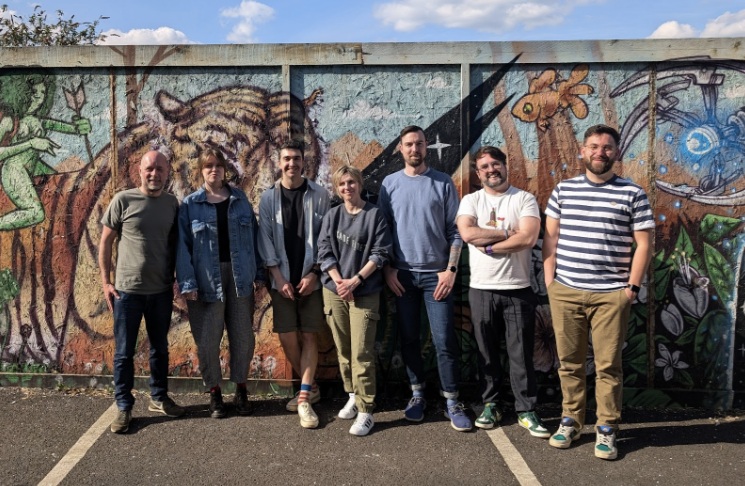
“Our mission is to create work that has a positive impact on people and planet, so becoming a B Corp felt like a natural step.
“Our tip is to really make sure that your people are on board with what you’re trying to achieve. B Corp certification isn’t something that a couple of people within the organisation can be solely responsible for. It’s down to everyone playing an active role – from committing to volunteering days to understanding what reproductive policies look like in our agency.
“We take regular opportunities to share what we’re working towards and invite feedback from teams across the business, which is so far proving successful.”
Sarah Dennis, Aer Studios (BCI profile | B Corp profile)
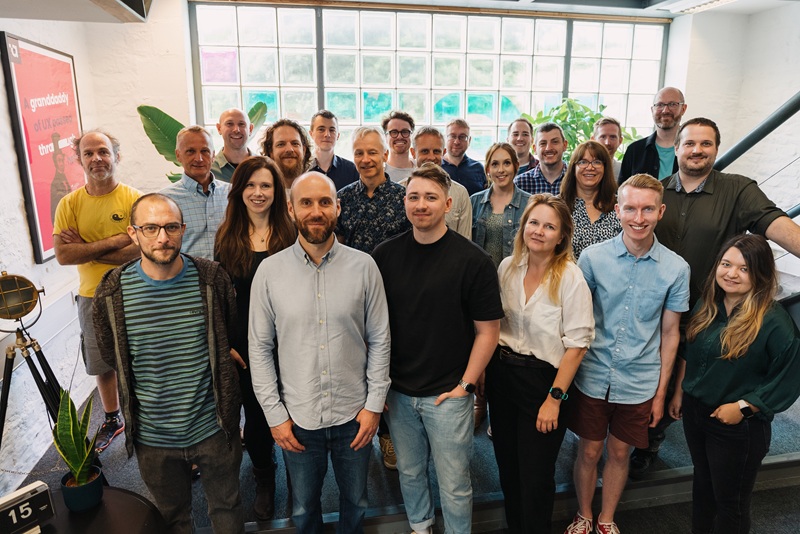
“Becoming a B Corp isn’t just about ticking boxes; it’s about weaving purpose into your business’s DNA. It starts with a genuine commitment to people, clients, the community, and the planet. Prioritise ethical practices, transparency, and accountability.
“Continuous improvement is key; small, meaningful changes create a lasting impact. Use your business as a force for good, challenge the status quo, and resist pressures that push against positive change. The journey to certification is a mindset shift, not just a process. When you do it for the right reasons, everything else falls into place.”
Josh Harrison, Taxi Studio (BCI profile | B Corp profile)
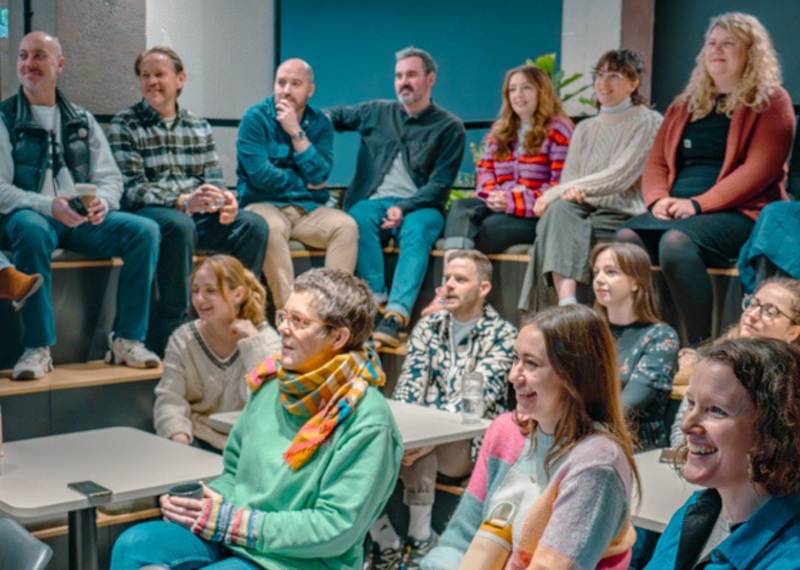
“First and foremost, you have to truly want to do it. When Something Familiar began our B Corp journey, it was because we wanted to wear our values on our sleeve and embed good practices from the start – ensuring our business grows in alignment with our principles.
“The process is rigorous and constantly evolving, but that’s the point. We started by being honest about where we were, then committed to change, growth, and improvement. It’s not just about policies, it’s about embedding impact into every decision.
“The benefits are super clear too, we’ve forged stronger relationships, engaged teams, and built long-term sustainability. If you’re considering starting your journey, the B Corp community is incredibly open and supportive, ready to guide you along the way.”
Rich Williams, Something Familiar (BCI profile | B Corp profile)
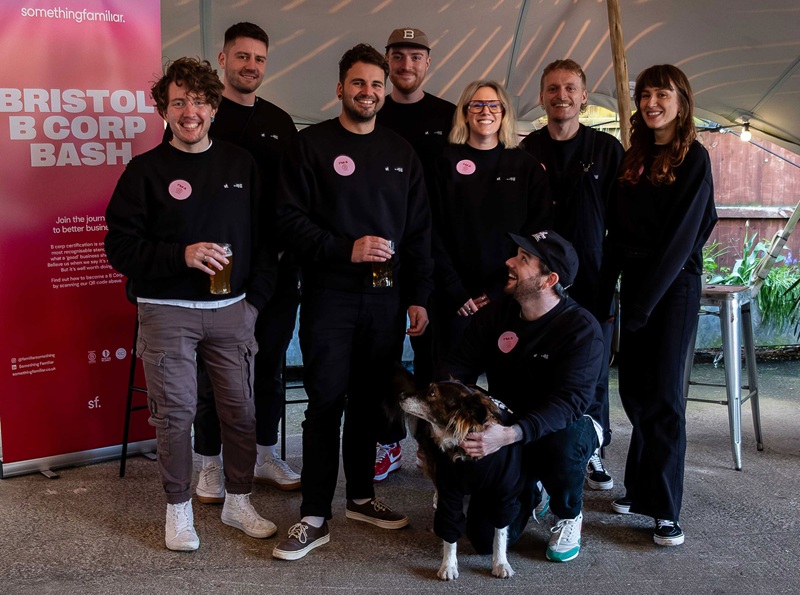
“Becoming a B Corp isn’t just about earning the certification, it’s about committing to continuous improvement in how your business operates. By embedding its principles into your company culture, you will ensure your team understands and embraces the commitment.
“From producing an annual impact report to recertifying every three years, B Corp principles should be woven into the fabric of your business, not forgotten once the plaque is on the wall. Tracking progress and gathering evidence are key to this. At our company, we hold a monthly B Corp team lunch to review each pillar and share updates. Certification isn’t the finish line–it’s the start of an ongoing journey to balance profit with purpose and drive meaningful impact.”
Lucy McKerron, Purplefish PR (BCI profile | B Corp profile)
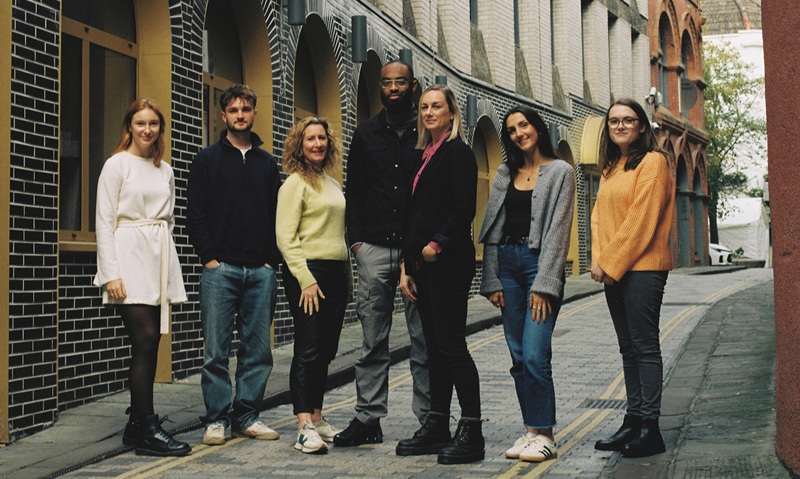
“Give yourself plenty of time. Use the Impact Assessment questions to inform and guide your company policies and business practices before deciding to go for certification, so that the core values of B Corp are already embedded into your culture.
“Learn from others who have been through it but if you can, engage a consultant. We were guided through the process by Byen which made the whole experience very enjoyable.
“Be thorough and meticulous. Continually record and build your evidence to simplify the submission stage.
“Look for easy wins – small changes can have a big impact.
“If you have been honest and evidenced everything, you can be confident of your score when you submit.”
Alexia Mihranian, Osborne Pike (BCI profile | B Corp profile)
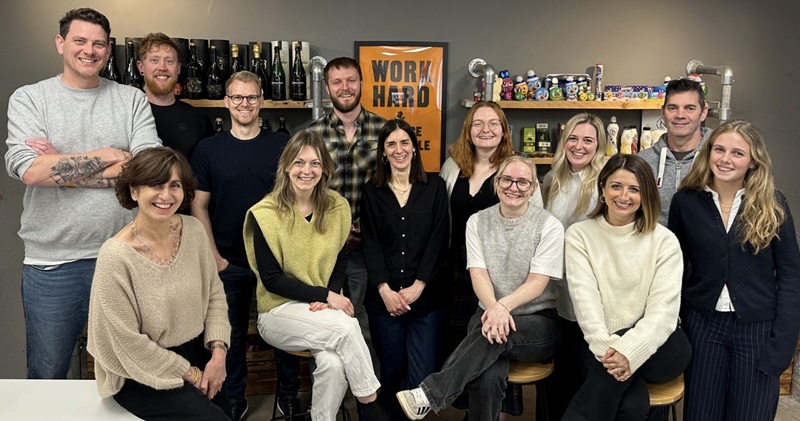
Be authentic
You should become a B Corp because you believe in the philosophy, not because it’ll benefit you, so do it for the right reasons and focus on initiatives that make a real difference to your team, your community and the world around you.
Focus on the Three Ps
People, Purpose and Planet are the cornerstones of being a B Corp. Get those right then in turn it will benefit your Profit.
Build B Corp into your culture
It takes time and energy to live your B Corp values. Embed purposeful initiatives into your company culture and objectives to stay focused and on track.
Make friends
It’s easier (and more impactful) to make a difference if you do so with others! Find your local B Corp community and make partnerships with like-minded businesses around you.
Be adaptable
What it means to be a B Corp changes with the times, so be adaptable to new landscapes within society and the planet as a whole.
Amy Stobie, AgencyUK (BCI profile | B Corp profile)
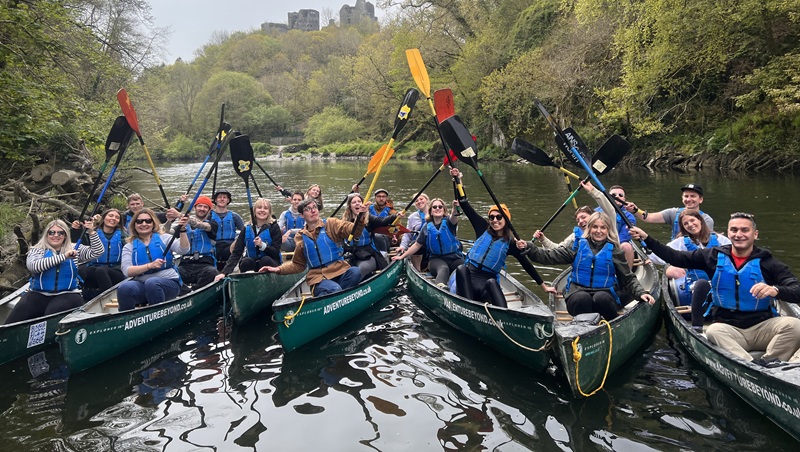
“Becoming a certified B Corp was a proud milestone for us at Rhombus.
“My advice? Don’t treat it like a side project. Make it part of how you do things, day to day.
“Get your team involved early, be honest about where you’re falling short and see it as a chance to improve, not just to certify.
“The process can feel heavy at times, but it brings real clarity. For us, it’s helped sharpen our purpose, hold ourselves to a higher standard and shape the kind of clients and collaborators we want to work with. Worth every spreadsheet (and late night!)”
James Ratcliffe, Rhombus (BCI profile | B Corp profile)
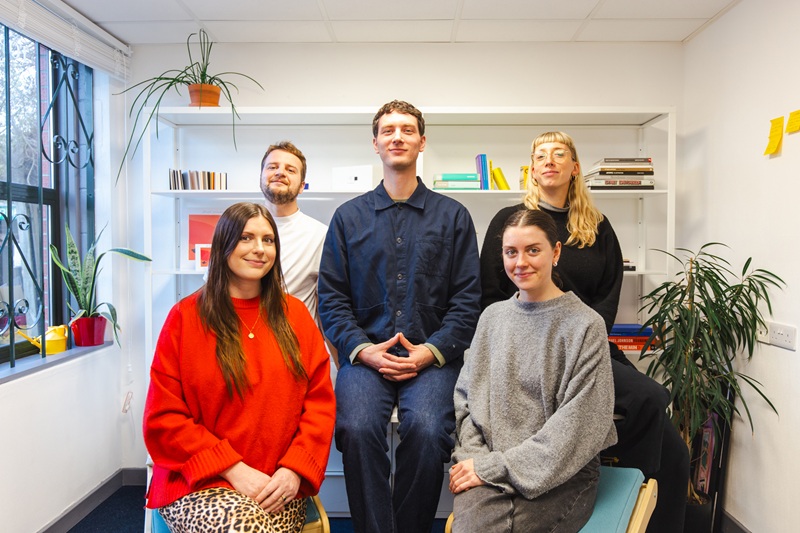
“Going through the process of becoming a B Corp is a little like eating the proverbial elephant – you have to do it one bite at a time.
“It is a big task, but by breaking it down you can make a plan that works with your resources. Try to get as many of your team involved as you can, not only to share the workload but to ensure everyone is on board and actively participating in the process. And don’t forget the wider B Corp community, including B Leaders, who are on hand to answer questions when you get stuck.”
Rin Hamburgh, Rin Hamburgh & Co (BCI profile | B Corp profile)
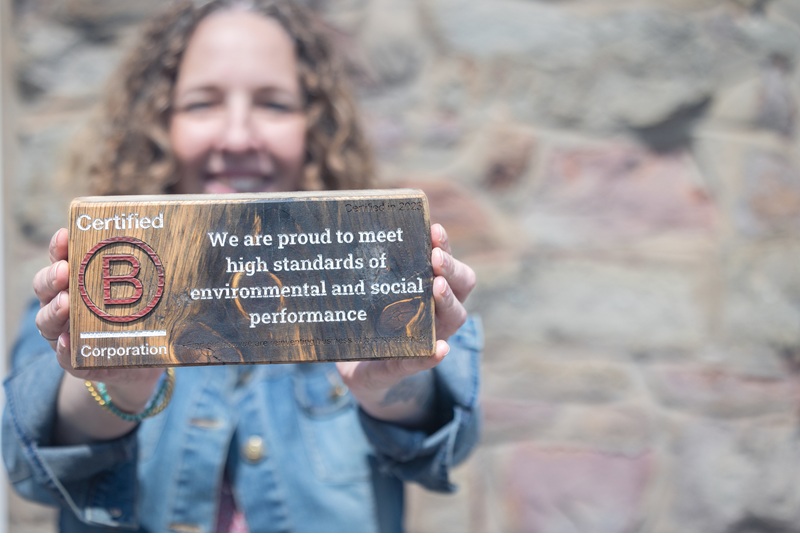
“The best way to become a B Corp is by not taking it as a set of requirements, but genuinely using them as principles to guide yourself as a business.
“Especially with the upcoming changes, becoming certified is a lot harder if you consider it as the minimum bar to jump. By thinking genuinely about the impact you can and want to make that aligns with who you are as a business it’s far easier to get everyone on board and embed B Corp into your culture, which in turn, makes the accreditation easier too.”
Alistair Paul, Bright (BCI profile | B Corp profile)

“We started our B Corp journey in 2018 and certified in 2019.
“The more we heard about it the more aligned we felt with it and that it gave us a framework to work towards and ultimately the recognition that we were running the company in the right way.
“The key thing is identifying where you feel as a company you can make a meaningful difference across the five core areas assessed. It’s important everyone has a voice and that you are all working towards the same goals you want to achieve.”
Steve Kay, ADLIB (BCI profile | B Corp profile)
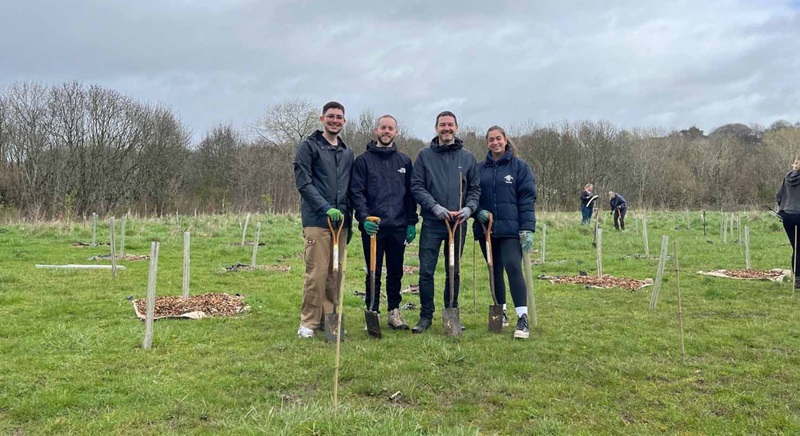
“I’d suggest working through the Business Impact Assessment one section at a time. And take your time. Chip away at tasks little and often to make steady progress. Try to set aside dedicated time each week to move forward.
“Share the workload with your team, so you don’t feel overwhelmed. It’s also important that the process feels authentic. Ideally, you’ll find that many of the policies, procedures, or at least values, are already in place in your company. So going B Corp feels natural and genuine, like the next step in your journey.”
Jess Evans, Shaped By (BCI profile | B Corp profile)
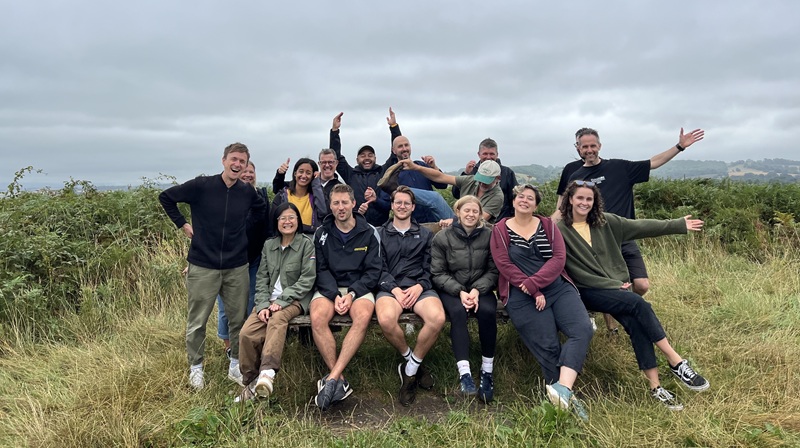
“Becoming a B Corp is a transformative journey that reshapes your business around core values centred on people, planet and purpose. At ORCA, these principles have always guided our work, and certification has only strengthened our commitment.
“This process impacts every part of your business, so involve your entire team from the start. Define clear roles and responsibilities to ensure that everyone contributes to the initiatives that drive sustainable change. Embedding these values into daily operations is key, and tapping into the B Corp community for insights and best practices provides invaluable support, reinforcing your mission and driving continuous growth.”
Mila Embury, ORCA (BCI profile | B Corp profile)
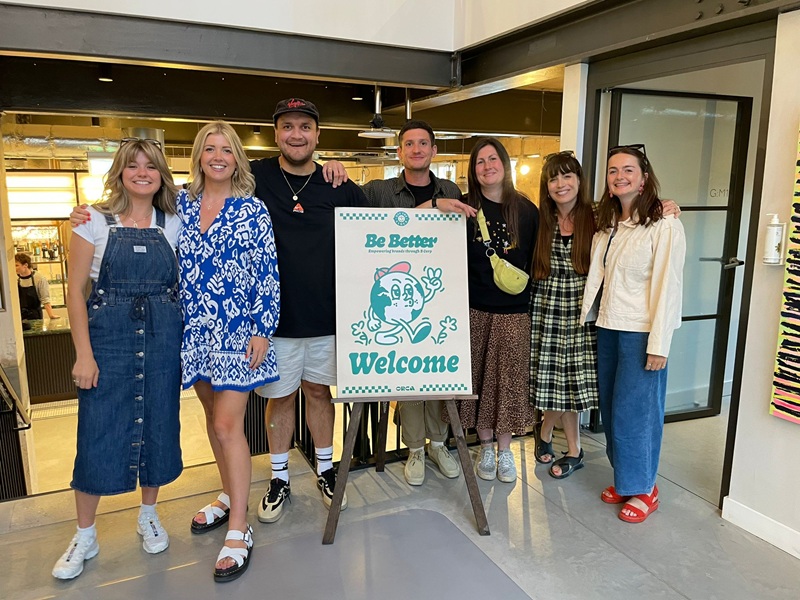
“Get support and carve out time:
“In terms of the application itself, we found some of the questions quite jargon-heavy. So we found it really useful to work with someone who had been through the process who could clarify what sort of information the question needed as a response.
“Having support from an external party also kept us accountable for hitting deadlines around filling in the application. We set aside one day a week during the application process.
“Involve your team:
“It’s impossible for one or two people to do everything. We found that involving the team helped to share some of the responsibilities, as well as adding an element of team-building and fun to the process.”
Karen Pearce, Loom Digital (BCI profile | B Corp profile)
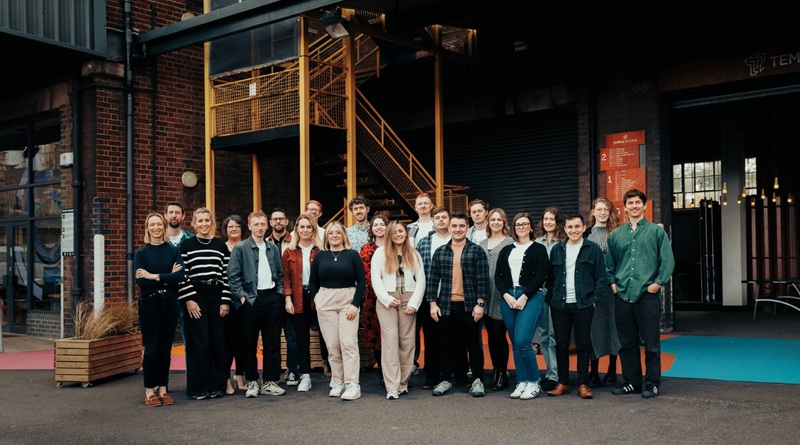
“Becoming a B Corp is just the beginning. Since certification, we’ve partnered with local B Corps to amplify our collective impact.
“We’ve focused on reducing energy consumption by installing new windows. Volunteering with charities like Bristol Zoo Project and St Peter’s Hospice has engaged our team and connected us more deeply to the local community.
“The quickest win? Switching to eco-friendly alternatives like CoCo+ for business travel and Ecosia, the greenest search engine on the planet. It’s the small, habitual changes that make a lasting difference in creating a more sustainable future.”
Lottie Pratt, saintnicks (BCI profile | B Corp profile)
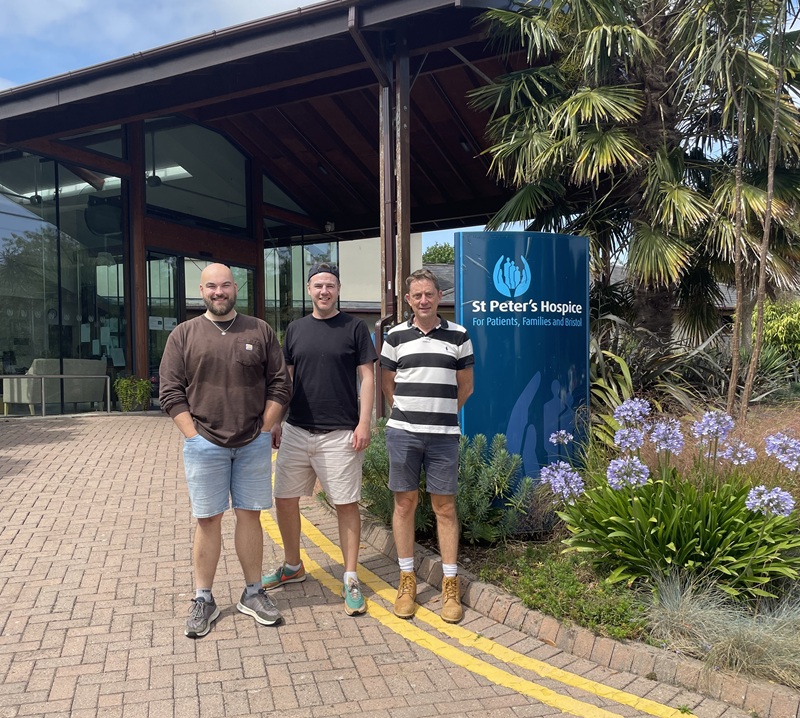
“Being a B Corp is a commitment to ongoing positive change rather than a one-time achievement, a journey rather than a destination to tick off.
“What’s worked for us has been small but regular sustainable changes: changes that can be more easily embedded into business processes, adopted by everyone in the business and built on each year.
“Certification is truly a team endeavour but, practically, it helps to have one project leader to coordinate stakeholders and drive progress.”
Belle Farman, Sunhouse Creative (BCI profile | B Corp profile)
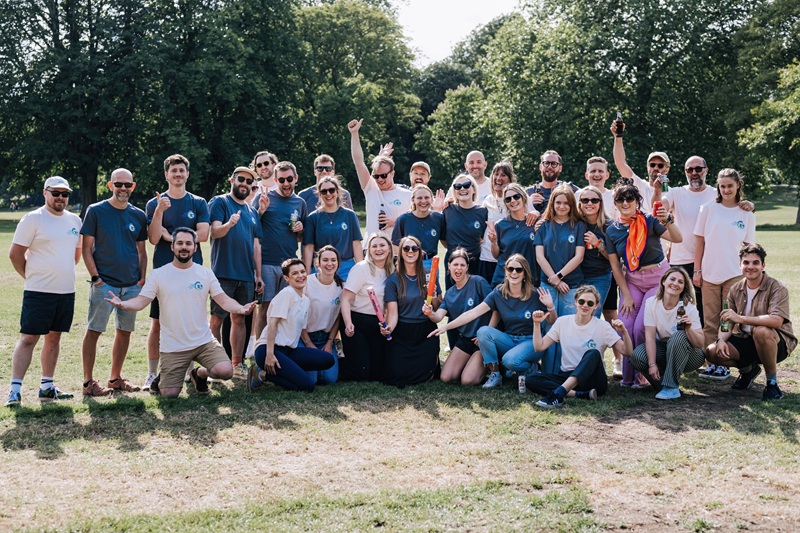
“For us the best advice we can give on how to successfully become a B Corp is simply to do it for the right reasons. If the B Corp set up is right for the values and direction of your business then it’s a no brainer. If however it’s primary use is that of a tool for sales, then reconsider. We’ve noted many controversial and immoral uses of the B logo by organisations hoping it’s a route to easy wins.
“The process of certification was a wonderful and thorough thing for us. It helped us ask questions of ourselves we wouldn’t have normally, set our business on a course for the foreseeable, and helped our team unite under clear and positive values. So our advice would be to enjoy the process with an open and honest mind. Even without certification you will take value from the process.”
Adam Millbank, JonesMillbank (BCI profile | B Corp profile)
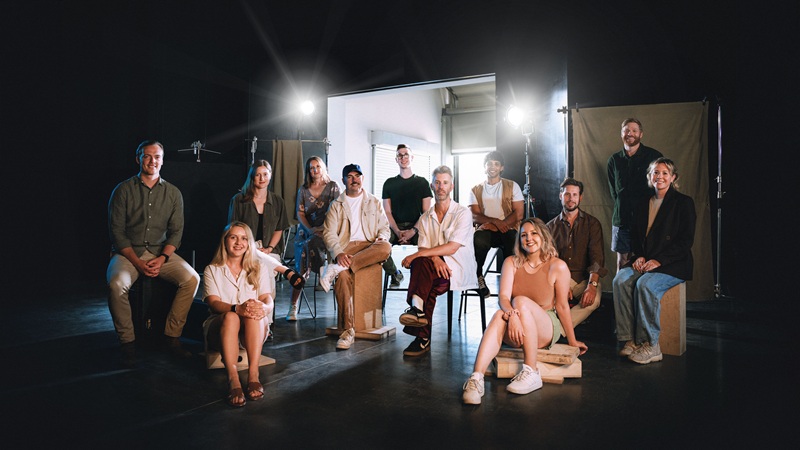
“Becoming a B Corp back in 2022 was a real turning point for us at Skylark. The B Impact Assessment helped us dig into what we were already doing well and where we needed to step up – across governance, team, environment and community.
“My advice? Don’t wait until everything’s perfect – just get started. The Impact Assessment is famously a journey, and with good reason. You’re interrogating every facet of your business.
“In uncertain times, when businesses face economic pressures and competing priorities, it’s easy to let purpose take a back seat. But it’s exactly when people, planet, and integrity are at risk that we need values-led leadership the most.”
Nina Postans, Skylark Media (BCI profile | B Corp profile)
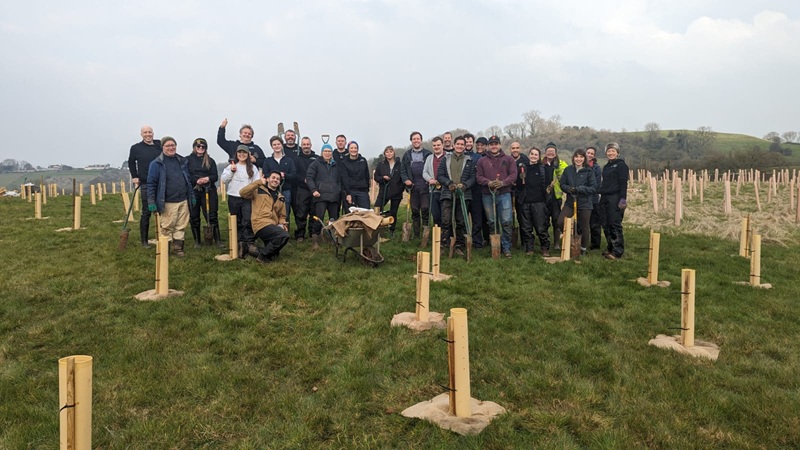
“Mustard is a Bristol based creative industry recruiter. We started our B Corp journey in September 2023 and we had confirmation of our acceptance in May 2024.
“We were looking for something that people in the business could get behind to increase the “purpose” in their role. We initially shied away from B Corp but when we went to a Bristol meet up and spoke to some people we realised that B-corp was actually it!
“We used an external advisor, the ubiquitous Andy Hawkins, who was a great help in just breaking down things that sound ominous into things that become very achievable. What we found was that we already did a lot of the stuff and that spurred us on to get that confirmation from an external organisation that we were a well-run business who gives a sh**!”
Peter Browne, Mustard (BCI profile | B Corp profile)
“Involve your team right from the start of your B Corp journey as you can’t do it alone.
“We needed to establish what was important to us and creating a culture where everyone is heard and can contribute means your B Corp statement is authentic and owned.
“We also would recommend being transparent, while creativity can be a force for good we also needed to be upfront with the sectors that we work in that can be playing catch up as they navigate change in sustainability.”
Ruth Clarke, Six (BCI profile | B Corp profile)
AI is transforming employee benefits—enhancing engagement, streamlining admin, and driving smarter decisions. Let’s explore how AI-powered personalisation, automation, and predictive analytics are shaping the future of benefits in and around Bristol.
Better decision making. Enhancing employee engagement…AI is changing benefits, fast. From reshaping how companies design benefits to how admin manage them, this tech is like nothing we’ve seen before.
So, how exactly is technology shaping the future of employee benefits? Let’s delve deeper into some of the most significant trends and predictions.
1. AI-driven personalisation
One-size-fits-all benefits packages are quickly becoming a thing of the past. Employees today expect benefits tailored to their unique needs and lifestyles. AI is making this a reality by analysing vast amounts of data—demographics, preferences, claims history, and even engagement patterns—to recommend the most relevant benefits for each individual.
For example, AI-powered benefits platforms may soon be able to suggest healthcare plans based on an employee’s past usage or recommend well-being programmes tailored to their stress levels or fitness goals. This kind of personalisation could help companies deliver benefits that really make a difference for their workforce, ultimately leading to greater satisfaction and retention.
2. Streamlining benefits administration with automation
AI and automation tools are changing the game by handling repetitive administrative tasks such as enrolment processing, compliance checks, and payroll integrations.
By automating these functions, Business Leaders and HR teams can free up valuable time to focus on strategic initiatives, such as improving employee engagement and workforce planning. Moreover, automation minimises errors, ensuring that benefits data remains accurate and up-to-date.
3. Improving employee experience with chatbots and virtual assistants
People Leaders frequently receive queries from employees about their benefits—ranging from eligibility and coverage details to claims procedures. AI-powered chatbots and virtual assistants can provide instant, 24/7 support to employees, answering common questions and guiding them through benefit selections.
This reduces the burden on Business Leaders and HR teams while ensuring that employees get the information they need when they need it. Plus, chatbots can proactively remind employees about key deadlines, such as tax periods or required documentation submissions, helping to improve overall engagement with benefits.
4. Leveraging predictive analytics for smarter decision-making
AI is already improving how benefits are administered, but what if it could also help companies make strategic benefits decisions? Predictive analytics tools will soon be able to analyse trends and employee behaviour to help HR teams anticipate future needs.
For example, AI could forecast which benefits are likely to see higher utilisation based on historical data, enabling companies to adjust their offerings accordingly. This would help Business Leaders and HR teams make data-driven decisions that align benefits with workforce needs, budget constraints, and overall company objectives.
5. Ensuring fairness and transparency in benefits access
AI-driven benefits platforms can also help eliminate bias in benefits administration. By analysing data objectively, AI can identify gaps in benefits utilisation among different employee groups and highlight areas where adjustments may be needed to ensure inclusivity and fairness.
For example, AI might reveal that certain demographics within a company are underutilising mental health resources due to a lack of awareness. Business Leaders can then take targeted steps to address these gaps, ensuring that benefits are truly accessible to all employees.
So…
What’s the take-away? Balancing innovation with a human touch
While AI offers incredible potential in the employee benefits space, it’s essential to balance automation with human oversight. The goal should be to enhance Business Leaders and HR’s ability to provide meaningful, personalised benefits—without removing the human element that makes employee support truly effective.
By embracing AI, companies here is the South West can not only improve efficiency but also create benefits experiences that employees love. The future of employee benefits is here, and it’s smarter, more personalised, and more impactful than ever before.
To learn more about what emerging technologies are bringing to benefits get in touch.
Being part of the Bristol Creatives community let’s explore how Business Leaders and HR can build a future-proof benefits strategy to stand out in the crowd.
In 2025, Business Leaders and HR Teams face a perfect storm of rising costs, shifting employee expectations, and global complexities. More than ever, benefits are a critical lever for your company’s success. Looking through the latest research alongside my day-to-day experiences I am witnessing some of the key trends that are reshaping the benefits landscape. It’s these insights that can help build a benefits package that really sticks the landing in 2025.
Trend 1: Low Employee Engagement
Despite many companies identifying employee engagement as their top priority in 2024, only a handful truly offered full flexibility in their benefits packages along with disjointed platforms further exacerbating this issue. Employees still struggle to find what they really need, reducing the perceived value of their benefits.
Companies can boost engagement by implementing flexibly of benefits and improving communication. Flexible allowances empower employees to spend on the benefits that matter most to them, while regular touchpoints ensure that they know what benefits are available to them.
But there’s another challenge. Most organisations don’t even have the data they need to make improvements. Without clear metrics, Business Leaders and HR teams are left guessing at what’s working and what’s not, making it harder to optimise benefits for engagement and retention.
If large enough (if you know…you’ll know!), employers should consider implementing a centralised benefits platform to simplify access and improve communication. Companies should also track key engagement metrics like utilisation rates and employee satisfaction to ensure their benefits are making an impact.
Trend 2: Reprioritising Foundational “Core” Benefits
In 2024, organisations reallocated their budgets to prioritise foundational (or Core) benefits such as medical and life insurance. This shift was largely driven by soaring healthcare costs and NHS waiting lists.
But focusing solely on reactive interventions without addressing preventative measures risks perpetuating the cycle of rising costs and declining health outcomes.
Companies should hold off on completely cutting wellbeing spend and instead pair foundational benefits with preventative wellness initiatives. Low-cost strategies like workplace wellness programs, ergonomic assessments, and access to digital wellbeing tools can reduce long-term healthcare expenses while boosting employee satisfaction. Just ask fellow member Nairn Robertson of Active Teams fame!
With employer healthcare costs reportedly increasing by up to 150% in some regions, benefits leaders are under growing pressure to rethink their approach. More organisations are shifting toward hybrid models that combine traditional insurance with preventative care, such as epigenetic testing, mental health support, and lifestyle coaching. Taking a proactive stance on employee health isn’t just a nice-to-have—it’s a necessity.
Trend 3: The ESG Opportunity
Despite dominating much of the conversation in previous years, Environmental, Social, and Governance (ESG) considerations remain underrepresented in benefits strategies. While initiatives like electric vehicle schemes are gaining traction, the broader social aspects of ESG—such as inclusivity and equity—are often overlooked.
But the winds are due to change. Generation Z highly value sustainability and inclusivity. Organisations that fail to align their benefits with these principles risk losing talent to competitors who demonstrate stronger commitments. Flexible bank holidays, DEI-focused initiatives, and sustainable benefits can enhance your employer brand and meet the expectations of a values-driven workforce.
Companies that integrate social responsibility into their benefits—whether through inclusive healthcare policies, sustainable investment options, or support for underrepresented groups—will gain a significant competitive edge. Employers should go beyond surface-level ESG efforts and embed these principles into their benefits programs.
So, what is the future of benefits? It’s clear…evolve and adapt or risk falling from behind. The data is clear: Business Leaders and HR who take a proactive, data-driven approach will lead the way in 2025. Flexibility, innovative tech, and ESG-aligned benefits aren’t just trends—they’re the new standard for a competitive, future-proof benefits strategy. Companies that embrace this shift will build stronger, more engaged workforces, while those that stick to outdated benefits risk losing top talent. The good news? With the right tools and insights, you can take control of your benefits strategy and turn it into a true driver of success.
If you wish to explore these themes further, then drop me a line!
As we settle into 2025, the ongoing cost of living crisis and economic volatility continue to strain both employees and employers, with many employees facing heightened financial insecurity.
So how can you optimise your benefits budget without cutting value? The first step is to discover how to reallocate wasted spend, secure better pricing, and leverage tax-efficient benefits to maximise impact.
Managing employee benefits, cost control is always on the agenda. But savings don’t have to come at the expense of employee experience. With a smart approach to benefits design, companies can reallocate wasted spend to more impactful benefits – or a better benefits platform to help you manage it all. This makes the most of your existing budget while boosting value for employees.
This practice is sometimes referred to as “cost-neutral benefits,” but the reality is more nuanced. While some companies can identify and redistribute significant savings, others may already be optimising their spend. Either way, a strategic review of benefits is always worth the effort.
Here are three key ways employers can find opportunities to optimise their benefits budget:
A common mistake? Investing in benefits that employees don’t value. Recent key research tells us that there is low appreciation levels from employees for their benefits.
The cause is likely to be benefits that don’t align with employee needs.
For example, a Bristol Creatives startup made up of mostly employees in their twenties might be overfunding its life insurance policy, as employees in this age group are less likely to engage with life insurance. By scaling back the coverage from 10x to 2x cover, they could free up a big chunk of their spend—money that could be reinvested in wider range of more relevant benefits, or a platform that helps manage the administrative burden of benefits.
So how can Business Leaders identify these opportunities?
But before you go cutting less utilised benefits, remember: there are some benefits that few employees might use, but that are highly valuable and even life changing to them when they do, such as reproductive assistance or critical illness cover. It’s important to balance these factors when assessing your benefits. Speaking to a benefits design expert will be your best bet to strike that balance.
Cost savings aren’t just about what you offer, but also how you fund it. Many companies lose money by not negotiating the best rates with insurers or missing out on more efficient financial structures.Here are some key ways to make the most of funding:
By optimising financial structures, companies can often unlock significant savings without compromising on benefits quality.
3. Leverage tax-efficient benefits
Another overlooked opportunity is tax-efficient benefits, particularly salary sacrifice schemes. These allow employees to exchange part of their salary for benefits, reducing both employer and employee tax contributions.For employers, this means that you’re able to offer amazing benefits like electric vehicle leasing schemes and even grocery schemes…at no cost to you!
In the UK, salary sacrifice arrangements can create savings on:
For employers not already leveraging these benefits, the savings can be substantial, especially on National Insurance contributions. Yet many organisations fail to fully utilise these tax advantages, leaving money on the table.
Maximise your benefits budget with expert support
Not every company will uncover huge savings—but almost all can optimise their approach. By identifying low-value spend, negotiating better financial models, and leveraging tax-efficient benefits, Business leaders and HR provide a significantly improved offering without increasing their spend.
Want to find out where your organisation can unlock savings? Book a free benefits audit consultation with me –same budget, bigger results.
With the latest government Budget bringing an increase in employer National Insurance costs, after my recent webinar members asked me “how” in practical terms to look at the best benefits to help combat the rise.
With tax rises worth £40bn announced in the Budget 2024 to fund the NHS and other public services, it’s fair to say businesses have been hit hard.
And with the increase in employers’ National Insurance (NI) from 13.8% to 15%, it will certainly have an impact on the financial packages provided for employees.
So how can Bristol Creative Member Employers navigate this change? Remember, when it comes to mitigating NI rises, employee engagement is your ace in the pack.
With employers facing a brand new cost, the need to communicate and educate around the fundamentals of employee benefits schemes is of vital importance.
Miscommunication is a major issue causing a disconnect between employers and employees, with just 50%of employees saying they know what their employer is offering, despite nearly nine in ten (87%) employers believing their benefits are communicated clearly and simply.
That is a major sticking point. In a challenging climate where budgets are expected to stretch further, this is an area for improvement.
By pointing employees towards salary sacrifice benefits, those selections can help employees and employers save money, with those actions ultimately leading towards the latter paying less in National Insurance payments. Remember, benefits in kind are much more efficient than being paid the salary equivalent.
From that, companies will have a larger pot of funds to focus on other aspects, including pay rises, professional development funds and company perks.
And to maximise the value of your employee benefit scheme, there are a number of ways you can handle these communications.
Without strong communication, employers cannot fully understand the demands of employee which can offer poor value for money for both employer and employee. In a challenging climate where budgets are expected to stretch further, this is an area for improvement.
In today’s world, you’re required to do so much more than simply put your benefits online. The way you communicate to employees will help your salary sacrifice proposition, offering clarity and knowledge via personalised communications.
It’s also vital that employers communicate and emphasise the value of salary sacrifice benefits, to help both themselves and employees save. But which are the best ones available?
Well, the are the most fruitful and popular and certainly worth investigating if you haven’t already are holiday trading, pensions, cycle to work, and electric vehicles.
Typically, holiday trading allows employees to purchase up to five extra days of annual leave on top of their contracted allowance. What’s better, they can even make tax and NI savings on the trade, ensuring you make savings too.
But what if they want to save for a rainy day? For those that perhaps prefer to work, it’s possible to sell any unwanted annual leave (be mindful that there is a limit to the amount of days you can sell too). You as the employer will pay colleagues at the agreed daily rate for working, but this of course is subject to tax and NI.
Either way, employees can either choose to spend more time on annual leave or put some money aside.
When it comes to pensions, Bristol Creative Employers often tell me that they can face a difficult task educating different demographics on the importance of their pension. But when offered via salary sacrifice it can help save on tax and NI, which ensures that it appeals to all parties.
And while I appreciate pension is not always the most captivating of subjects, there are distinct advantages of offering a salary sacrifice pension including the ability for employees to grow their contributions at a quicker rate, as you as the employer will be making a higher contribution each month. In addition lowering a salary to align with salary sacrifice means employees pay a lower rate of tax and NI too.
It’s worth remembering, pensions are typically the biggest financial benefit you as the employer provides, and the biggest that an employee receives (other than salary). You can be really smart about your pension by focusing on sustainable funds which ticks a huge box for ‘Gen Z’s’ right now.
Cycle to work is the ultimate benefit for combining wellbeing and financial savings. Not only does it save on tax and NI, it also keeps employees fit and helps to drastically reduce the cost of commuting. What’s more, it also allows the employee and employer to be more sustainable.
According to CycleScheme, 51% of people now want to cycle to work. And with the opportunity to spread the cost of a new bike over 12 or 18 months while making tax and NI savings, you can join the hundreds of Bristol Creative Members who have already realised that making the transition from seat to saddle is a good deal. It’s pretty straightforward. Employees can hire a bike and/or safety equipment to travel to work, usually for a period of 12 or 18 months. By saving employees tax and NI, they select a voucher or choose a bike from you or your third party. From there they will agree with the hire arrangement and pay the full value of that through salary sacrifice and finally, at the end of the hire agreement, the employee can either extend the agreement, return the cycle and/or equipment or buy it outright.
Last but not least, an electric vehicle scheme which offers several benefits for both employees and employers. Since the lease payments are deducted from the gross salary before tax and NI contributions are calculated, employees pay less income tax and NICs. This effectively reduces the overall cost of the vehicle. In addition to being a more sustainable choice compared to petrol or diesel cars, electric vehicles typically have lower running costs too. Currently, electric vehicles do not have to pay for road tax. Compared to leasing a petrol or diesel car, electric vehicles benefit from lower Benefit-in-Kind (BIK) tax rates. Employers also benefit from reduced NI contributions because the employee’s gross salary is reduced. Again, tapping into the sustainability focus, providing access to electric vehicles also helps companies to enhance their green credentials. Members often ask how the benefit works.
An electric vehicle salary sacrifice scheme allow employees to lease a new electric car through s the employer for a set period, such as a year or longer. Employees pay for the lease directly from their pre-tax salary, before income tax and NI deductions are applied. This arrangement saves them the tax they would have otherwise paid on the lease amount. Employers typically work with leasing companies to provide these vehicles. The terms of the agreement, including duration and the type of vehicle available, are predefined, and employees must agree to these terms.
So, there you have it. When it comes to combatting the NI rise, maximise your employee engagement across the board, and use insights, and of course the latest trends, to tailor communications to employees. You’ll improve uptake in salary sacrifice benefits (saving everyone money), significantly improve ROI and, most importantly, put talent attraction and retention in a positive light.
Where do you start? Un:fade is here to help and offers a free benefits audit for qualifying members.
You need to load content from reCAPTCHA to submit the form. Please note that doing so will share data with third-party providers.
More Information